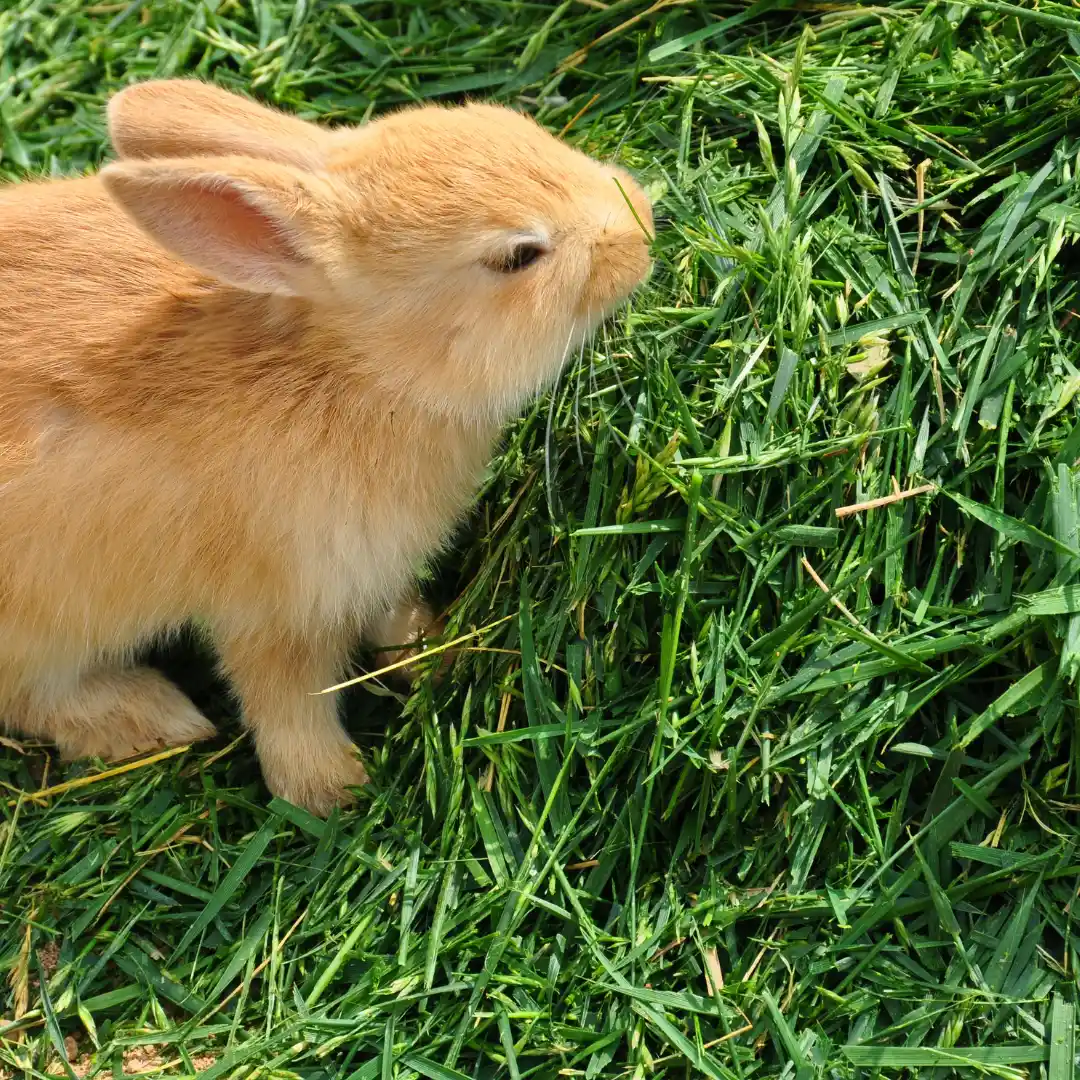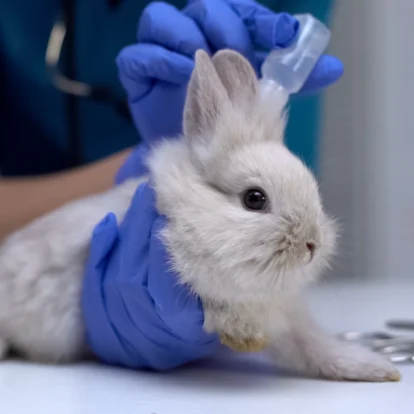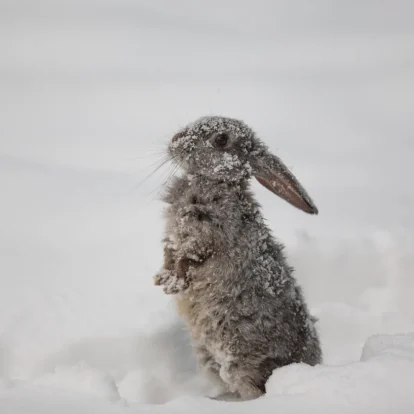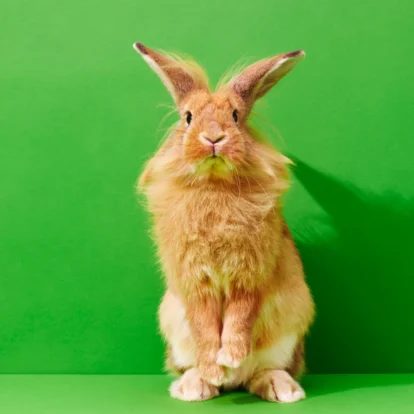Table of Contents
Introduction
Ever looked at your fluffy bunny friend munching on a carrot and wondered, “Wait, are rabbits herbivores?“
Yep, you’re not alone! This question hops around the internet more than a rabbit in a clover patch. Well, my fellow rabbit enthusiasts, you’re in for a treat because we’re about to hop right into the heart of what rabbits eat, be they wild rabbits with their adventurous palates or our pampered pet rabbits with their gourmet preferences.
From their tiny yet mighty, continuously growing teeth to their complex and fascinating digestive system, we’ll explore the ins and outs of a rabbit’s diet. What nutrients are they searching for in their foods, and how do their eating habits support their need for selective feeding? And, perhaps the biggest carrot on the stick – do rabbits eat meat, or are these adorable animals strict about their herbivore status? 🥕
Whether you’re a seasoned rabbit caretaker or just curious about these hopping wonders, you’re in the right place. Together, we’ll unravel the mysteries surrounding what exactly goes into those twitchy mouths while navigating the fun world of rabbits’ culinary preferences. Stick around as we dig deeper into rabbits’ diet and how everything from their teeth to their tummy contributes to their well-being.
Are Rabbits Herbivores?
Busted! Bunnies are Totally Plant-Powered 🌱
To put it simply, yes, rabbits are herbivores. These adorable furballs exclusively eat plant-based foods and lack the enzymes necessary to digest meat. In fact, their digestive system is highly specialized for breaking down fibrous plant materials.
What’s an Herbivore, Anyway? 🌱
In the simplest, snack-sized explanation, think of herbivores as the ultimate veggie lovers of the animal kingdom. These critters are all about a plant-based diet, turning up their noses at anything that walks, flies, or swims. Instead, they fill their plates (or, in our case, feed bowls) with leaves, fruits, veggies, and the occasional flower. Imagine being so devoted to your greens that literally, everything you eat comes from the earth. That’s an herbivore for you, and yes, our fluffy friends, rabbits, are proud members of this veggie-munching club. Scientists call them “obligate herbivores“—meaning they’re designed to thrive on fiber-rich plants alone. 🥕
Why the Veggie Love? 🥬
First, have you seen those chompers? Rabbits’ teeth are the superhero version of our teeth, especially those front incisors. They never stop growing, which sounds alarming, but it’s perfect for their lifestyle. Chewing on fibrous plant material like fresh grass and mustard greens keeps their teeth at just the right length.
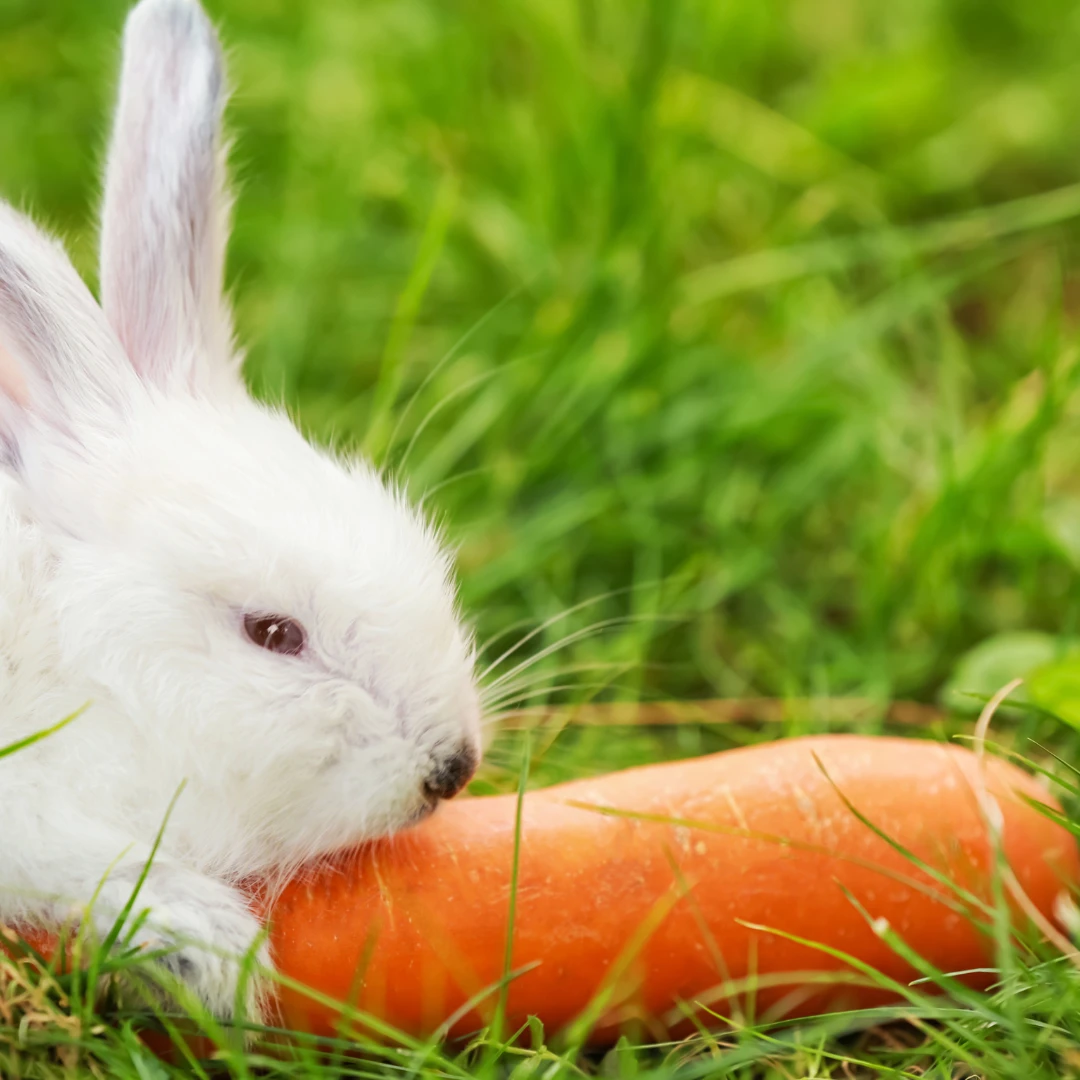
Neglect those dental workouts, and ouch, you’re looking at some severe dental disease. That’s why it’s mega important for pet rabbits to have a constant supply of hay—it’s like their version of a treadmill.
But wait, there’s more to their foodie profile. The real magic happens in their digestive system. Rabbits have this incredible gut designed to break down fibrous plant material into all the necessary nutrients. This is where things get a bit science-fictiony, with a process called hindgut fermentation. Yes, their tummy acts like a fermentation factory, turning stuff we’d struggle with, like cellulose, into energy and nutrients. It’s a fine-tuned system that requires a balanced diet to keep everything running smoothly.
Only feed them a diet rich in fresh grass, hay, and some leafy greens with small amounts of fruits and veggies, and they’re golden. Stray into the land of nutritional imbalance, and you’re asking for trouble. Rabbits’ digestive systems are so specialized that any abrupt changes or the wrong types of food can lead to some not-so-great health issues.
Maintaining a pet rabbit on this kind of diet isn’t just about keeping them physically healthy; it’s also about catering to their emotional well-being. Rabbits are social animals, and feeding them becomes an interactive and bonding experience. Imagine offering your bunny a sprig of parsley or a slice of apple (in small amounts, of course). It’s not just feeding time—it’s a moment of connection, affirming your rabbit’s trust and comfort with you.
Wild vs. Pet Rabbits: Same Team, Different Menus?
Wild rabbits – those fluffy, hoppy adventurers you spot in fields and meadows – have quite different dining habits compared to their domestic cousins. These wild ones are like the self-sufficient foragers of the rabbit world, nibbling on a vast buffet of grasses, plants, and whatever tender greens they can get their little paws on. They’re all about that fresh, raw, and unprocessed life, from dandelion greens to Brussels sprouts and, yes, even those iconic carrot tops! But it’s not just about the veggies; seeds and small amounts of fruits also make the cut when available.
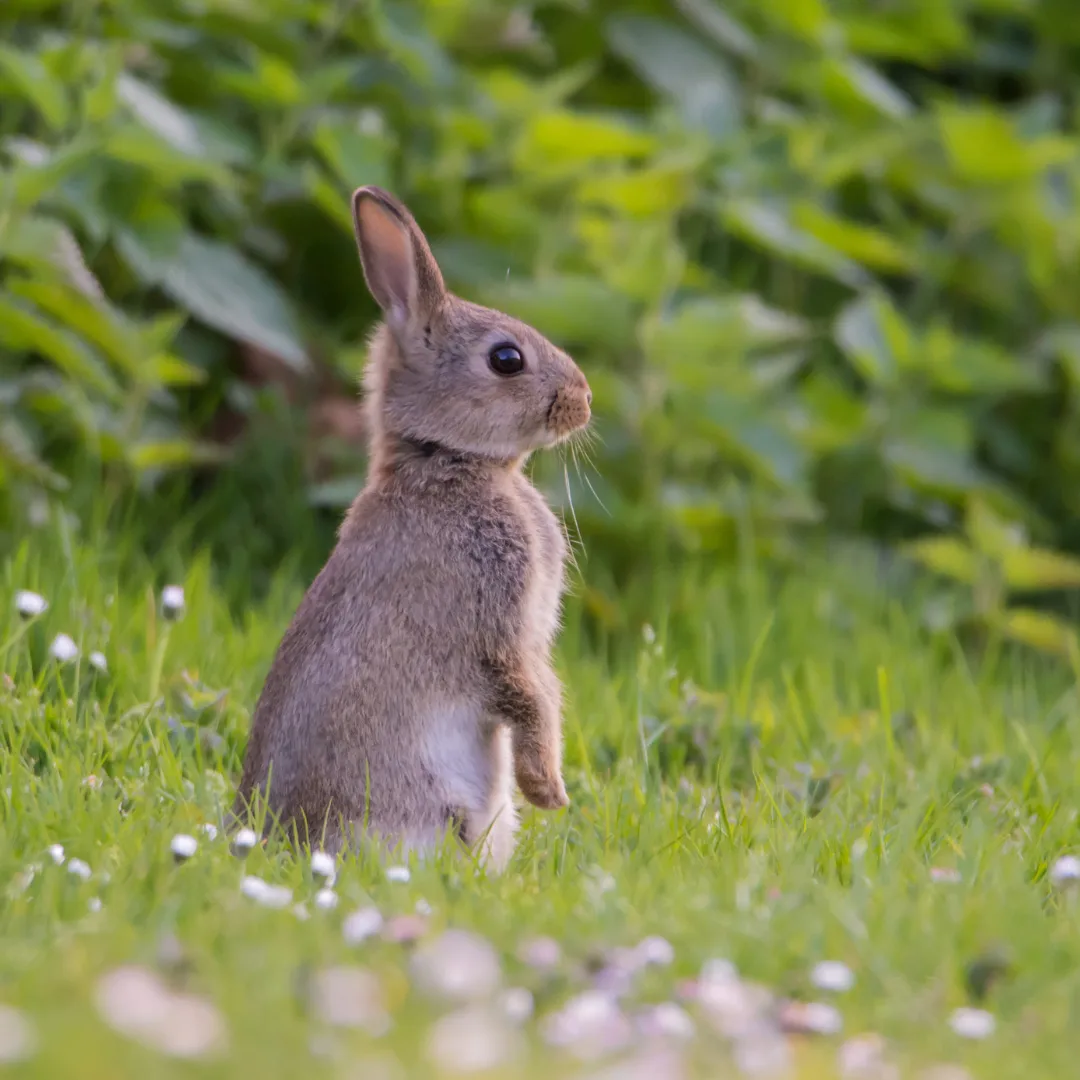
Now, flip the bunny coin, and you’ve got your pet bunnies. 🏡 Keeping your pet bunny hopping with joy and health is a task I deeply cherish, and boy, does it revolve around what’s on their plate!
Hay is King! The Importance of Fiber
First and foremost, hay is not just food; it’s the king of bunny diets, especially that golden, fibrous, oh-so-crunchy alfalfa hay for the younger buns or other grass hays for the adults. It’s all about keeping that digestive tract moving and grooving, which is crucial for avoiding scary stuff like GI stasis. Plus, munching on hay all day helps keep those ever-growing teeth in check. Imagine that alfalfa hay is not just tasty; it’s vital for those under 7 months since it’s high in calcium, essential for their developing bodies.
Veggies and Fruits: A Colorful Mix of Treats
Then we dance into the world of veggies and fruits – the spice of life or the toppings on the hay pizza, if you will. 🍎 Romaine lettuce, dandelion greens, and yes, even the occasional slice of apple turn an ordinary meal into a feast. But here’s where you’ve got to wear your nutritionist cap – too much of a good thing can lead to issues like urinary stones due to the high calcium in some veggies. Also, hydration is vital, so alongside those crunchy meals, fresh water should always be on tap, making that water bowl an oasis of health.
Beyond the Basics: Fun Facts About Rabbit Foodie Habits
Poop-Eating Habit
The topic everyone’s dying to chat about at dinner parties: coprophagy! 😅 Yep, our furry friends are professional poop-eating champs. But before you go “Ew!”, hear me out – it’s all part of the circle of…nutrients. Rabbits produce two types of droppings: the regular ones and the special, softer cecotropes packed with nutrients not absorbed the first time.
It might sound icky to us, but for them, it’s like accessing a second round at a gourmet buffet, ensuring they get all the vitamins and minerals they need. It’s nature’s own little recycling program! 🌿
Occasional Wood-Chewing Craving
And then, there’s the occasional wood-chewing craving that turns your beloved pet into a bit of a beaver. 🐰=🌲? It might seem odd, but it’s perfectly normal. This gnawing habit isn’t a commentary on your cooking; it’s an essential activity to keep their teeth in good shape.
Rabbits’ teeth grow continuously, and chewing on wood helps file them down to a comfortable size. Just ensure the wood is safe and untreated to prevent harmful effects. Who knew being a rabbit was so high maintenance? But, honestly, watching them nibble away is just too adorable, making it all worth it.
Conclusion
Are rabbits herbivores? To sum it up, our bunny pals are hardcore into their plant-based diet by necessity and design. From their teeth to their tummies, every part of a rabbit is tuned to a life of munching on greens. Ensuring your pet rabbit has a balanced diet rich in the right plant material isn’t just a part of good rabbit care—it’s an opportunity to bond and keep those little fluffers happy, healthy, and hopping with joy for long periods. 🐰✨

